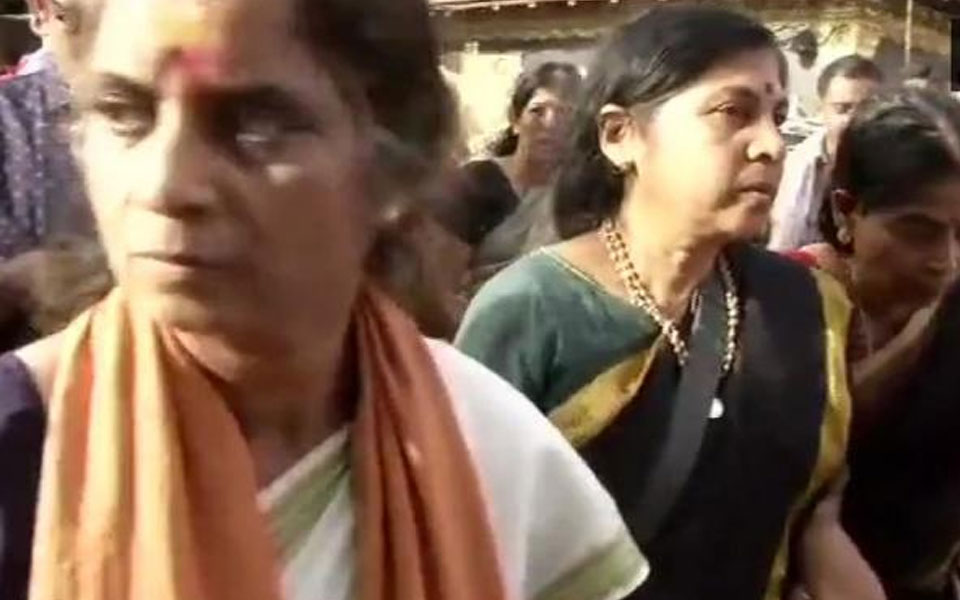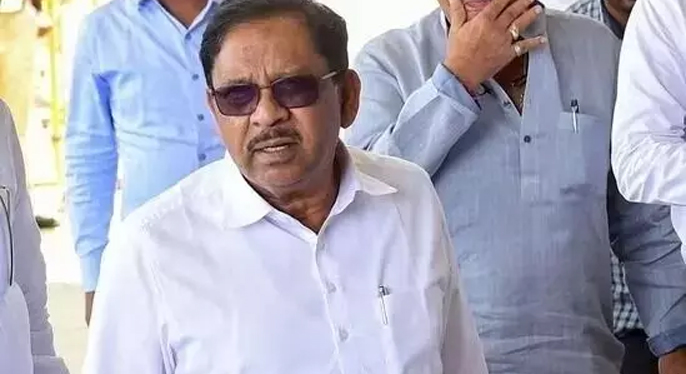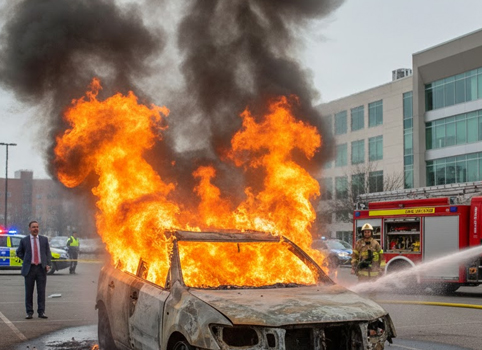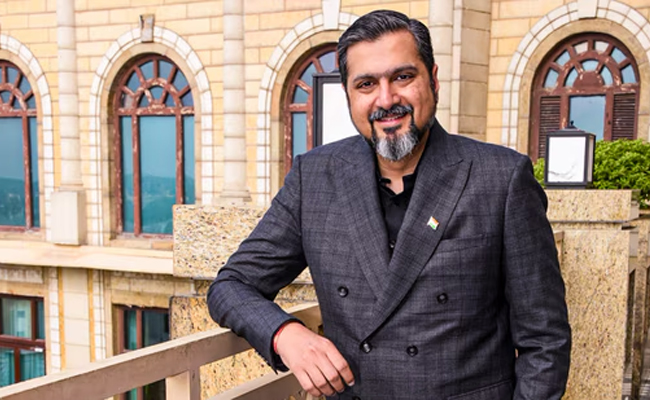Sabarimala, Nov 6 : Clapping and chanting 'Ayyappa saranam', about 200 frenzied devotees surrounded a woman pilgrim on Tuesday to prevent her from entering the Sabarimala shrine, suspecting her to be of menstrual age.
The 52-year-old woman, identified as Lalitha from Tirur, had come to the temple with 19 relatives, including women, for her grandson's 'chorunnu' (rice giving ceremony).
She was near the 'nadapandal' -- the area just before devotees climb the 18 steps to reach the sanctum sanctorum -- when her group was blocked by the protesting mob. Police intervened and after ascertaining the woman's age informed the protesters that she was not in the 'barred' age group and escorted her away.
Local media channels said journalists were also heckled. However, police denied that any such incident took place.
The doors of Sabarimala had opened for six days on October 17 for the first time since the Supreme Court allowed women of menstruating age group to enter the shrine, but none could make it to its hallowed precincts amid a welter of protests and violent clashes.
Lalitha was later taken to a hospital after she complained of uneasiness.
However, after a while she and some of her relatives returned and offered prayers at the temple, which opened this morning for the "Sree Chitira Atta Thirunal" puja to mark the birth anniversary of the last king of the princely state of Travancore Chithira Thirunal Balarama Varma.
As they were speaking to media persons after the 'darshan', some of the protesters heckled them.
"We didn't expect such a situation," Lalitha said.
Girls below 10 years of age and women above 50 have frequently prayed at the temple in the past. However, the entry of women of all ages has become a sensitive issue after the Supreme Court verdict.
On Monday, a 30-year-old woman, who had reached the base camp at Pamba along with her husband and two children, went back early this morning without offering prayers.
She had told police that it was her husband who was keen that she should worship at the Ayyappa temple.
The Ayyappa temple here opened Monday for the second time in three weeks for a two-day special puja amid unprecedented security over apprehension of protests by those opposing the Supreme Court order allowing women of all age groups into the shrine.
Hundreds of police personnel, including armed commandos, are keeping a tight vigil in the temple complex and nearby areas to prevent any untoward incident.
Following the verdict, attempts by around a dozen women, including activists and journalists in the 10-50 years age group, to script history came to nought as frenzied devotees of Lord Ayyappa heckled and hassled them and forced them to retreat.
Both the Congress, the main opposition party in Kerala, and the Bharatiya Janata Party, which is seeking to expand its footprint in the state, have lent support to the agitation against the Supreme Court verdict.
Let the Truth be known. If you read VB and like VB, please be a VB Supporter and Help us deliver the Truth to one and all.
Kolkata (PTI): Seven people were arrested from the Parnashree area in the southern part of the city for allegedly running a fake call centre, a police officer said on Saturday.
Acting on a tip-off, police raided a house on Netaji Subhas Road on Friday night and found the fake call centre operating from the ground floor, he said.
Preliminary investigation revealed that the accused had set up a bogus company using forged documents and posed as employees of an antivirus firm to call citizens in the US, the officer said.
"The callers would gain the trust of victims and then use remote access to take control of their phones or other digital devices. The accused allegedly siphoned off large sums of money, running into millions of dollars, from victims' accounts," he said.
Five laptops, two WiFi routers, six mobile phones and four headsets were seized from the accused, he said, adding that the seven are being questioned to ascertain the full extent of the racket and to identify others involved.





